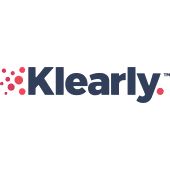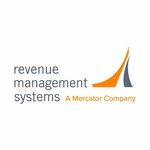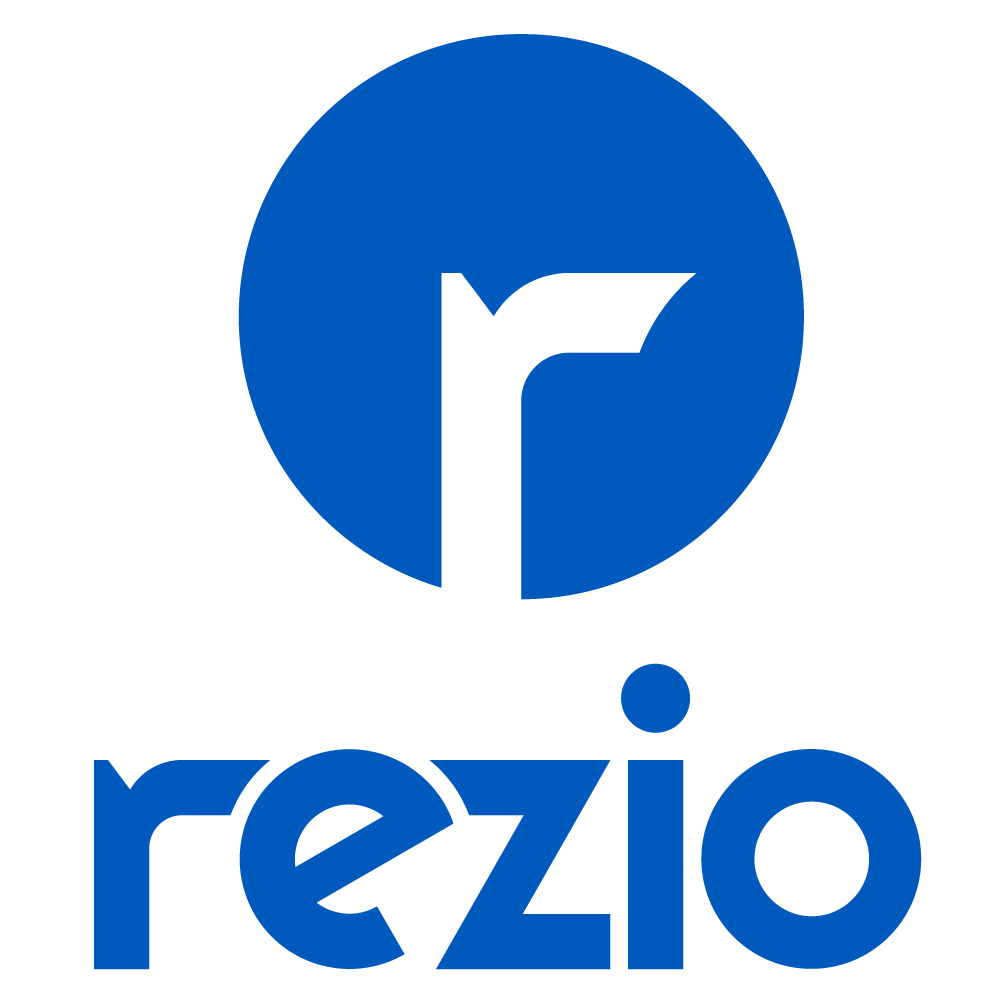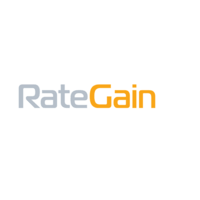Yes, revenue management software is accessible across numerous devices and platforms, making it a versatile and convenient choice for enterprises. Whether you're on a computer, tablet, or smartphone, you can use the program and manage your revenue at any time. Furthermore, most revenue management software is compatible with a variety of operating systems and browsers, allowing users to access data across several devices seamlessly.
List of 20 Best Revenue Management Software
Kluster is a SaaS revenue predictability platform. Our platform is designed to help revenue leaders exceed targets through streamlined strategy, planning, and execution. With Kluster, teams can develop winning strategies, customize plans, and effecti...Read More Kluster
Klearly solution for B2B revenue teams. Our cutting-edge platform combines advanced machine learning with real-time insights and predictions to guide your sales, marketing, and customer success efforts, driving revenue like never before. Say farewell...Read More Klearly
Medcubics is a cloud-based practice management software designed for both small and large physician practices. With its intuitive tools, Medcubics allows you to efficiently handle all aspects of your practice, freeing up your time to focus on your pa...Read More Medcubics
Kigo is a premium property management software designed to streamline operations, enhance guest experience, and boost revenue for vacation rental companies. With its advanced features, it enables automatic bookings, customizable pricing, and seamless...Read More Kigo
airRM is a revenue management software designed specifically for airlines. It empowers airlines to optimize their inventory, pricing, and reporting in real-time, leading to higher profitability and efficiency. Trusted by top players in the industry,...Read More airRM
IDeaS G3 RMS, a revenue management solution that delivers exceptional profitability and accelerated growth for hospitality enterprises of all sizes. With advanced automation and intelligent algorithms, IDeaS G3 RMS simplifies pricing and inventory de...Read More IDeaS G3 RMS
Optimus Suite is a and advanced Revenue Cycle Management (RCM) software that is specifically designed to enhance the financial performance of healthcare providers. Our all-inclusive services cover consulting, credentialing, coding, billing, and denia...Read More Optimus Suite
Ericsson Revenue Manager - a groundbreaking software revolutionizing revenue management in the telecommunications industry. This cutting-edge technology enhances efficiency, streamlines processes and lowers operational costs, elevating financial oper...Read More Ericsson Revenue Manager
Outperform RMS is a revenue management system designed to boost hotel revenue and enhance RevPAR through cloud-based technology. With advanced algorithms and seamless industry integrations, this dynamic software simplifies decision-making and maximiz...Read More Outperform RMS
StreetGooser is the premier choice for Hospitality Property Management Software. Our solution empowers you to streamline hotel operations, reservations, and guest experiences effortlessly. With StreetGooser, efficiently manage and enhance your proper...Read More StreetGooser
Approved Admissions revolutionizes insurance eligibility verification for healthcare facilities through its innovative cloud-based platform. Say goodbye to claim denials and billing errors with proactive notifications for changes in Medicare, Medicai...Read More Approved Admissions
MVNO Revenue Management, this software designed for mobile virtual network operators. With its comprehensive features, it transforms billing procedures, enhances revenue generation, and improves customer satisfaction. Experience streamlined financial...Read More MVNO Revenue Management
Revedia is a content revenue management software specifically designed for media and entertainment companies. It uses advanced artificial intelligence technology to provide strategic insights for licensing to both traditional Pay TV and modern OTT co...Read More Revedia
Rezio is the premier online booking system for Attractions, Tours, and Activities companies in Asia. It provides a comprehensive platform for effortlessly selling tickets, tours, and experiences online and reaching a global market. With Rezio, busine...Read More Rezio
coAction - an innovative business productivity software that streamlines operations and optimizes teamwork. Empower your team to work more efficiently and achieve exceptional results with coActions cutting-edge capabilities. Maximize your work enviro...Read More coAction
PROS is a management solution for your business. This industry-leading software offers a comprehensive suite of features tailored to catering to the complex management challenges of various industries. From B2B services and logistics to energy and fo...Read More PROS
Apttus CPQ is a sales management software that automates the configured price quoting process. Specifically designed for sales teams, it eliminates the need for multiple offerings and provides guidance for streamlined selling and approval procedures...Read More Apttus
SiteMinder is a hotel management software crafted by professionals in the industry. It enhances your hotels online presence and drives more website traffic and bookings. Through seamless integration with multiple third-party applications, it simplifi...Read More SiteMinder
RateGain is a software for increasing your booking rates and outperforming your competitors. With powerful pricing optimization features, it helps you stay ahead in the ever-changing market and maximize your revenue. Give your customers the best deal...Read More RateGain
RateBoard is a revenue management software tailored for the hospitality sector. Our platform leverages sophisticated algorithms to streamline room rates, automate pricing strategies, and provide insightful data for improved hotel efficiency and highe...Read More RateBoard
Learn More About Revenue Management Software
- What Is Revenue Management Software?
- What Are The Recent Trends In Revenue Management Software?
- Benefits Of Using Revenue Management Software
- Important Factors To Consider While Purchasing Revenue Management Software?
- What Are The Key Features To Look For In Revenue Management Software?
- Why Do Businesses Need Revenue Management Software?
- How Much Time Is Required To Implement Revenue Management Software?
- What Is The Level Of Customization Available In Revenue Management Software?
- Which Industries Can Benefit The Most From Revenue Management Software?
- Conclusion
What Is Revenue Management Software?
Revenue management software is a strong tool that enables firms to optimize pricing strategies, generate revenue, and maximize profits. Also known as revenue optimization software, this technology forecasts demand, sets pricing, and manages inventory to maximize income. There are numerous types of revenue management software available, each tailored to a certain industry and business requirements.
However, at its core, this software is intended to analyze massive volumes of historical and real-time data such as customer demand, market trends, and competition pricing in order to make informed pricing decisions. Businesses can use revenue management software to eliminate the guesswork from pricing and instead make data-driven decisions that are aligned with their goals and objectives.
This software also enables firms to segment their clients depending on their behavior and adapt pricing and promotions accordingly. This level of customization can boost revenue while also improving consumer satisfaction and loyalty. One of the primary advantages of revenue management software is the ability to optimize pricing in real time. As market conditions and customer behavior change, the program may instantly modify prices to maintain competitiveness and profit.
This dynamic pricing model enables organizations to generate the maximum income possible at any time. Revenue management software is especially useful for firms that offer a wide variety of products or services. Trying to manually alter the prices for each item can be time-consuming and difficult. This technology allows firms to assess various items and automatically alter prices based on real-time data, saving time and money.
What Are The Recent Trends In Revenue Management Software?
In recent years, revenue management software has become a vital tool for firms trying to increase revenue and profitability. As the market evolves, new trends emerge in this category of software.
Let's look at some of the most current trends in revenue management software.
1. Move Towards Cloud-Based Solutions: One of the most significant changes in revenue management software is the shift to cloud-based solutions. Instead of traditional on-premise solutions, an increasing number of firms are choosing cloud-based software. This move enables firms to access software from anywhere and at any time, while also eliminating the need for costly hardware and maintenance costs.
2. Integration With Other Systems: Another development in revenue management software is integration with other business systems, such as sales, marketing, and customer relationship management (CRM) software. Businesses can gain a more comprehensive understanding of their operations and make better decisions by syncing data from multiple platforms.
3. Real-Time Data Analysis: With technological advancements, revenue management software now provides real-time data analysis. This enables organizations to make quick decisions based on current information, rather than obsolete data. Real-time analysis also allows firms to detect and respond to revenue-generating opportunities and challenges as they emerge.
4. Application Of AI And Machine Learning: Artificial intelligence and machine learning are increasingly altering the revenue management landscape. These technologies can analyze massive volumes of data to detect patterns and trends, helping organizations to make more precise revenue forecasts and pricing decisions. This tendency is projected to continue as AI and machine learning skills advance.
5. Personalization And Customization: In today's highly competitive industry, providing a tailored experience to clients is critical for retention and revenue generation. Revenue management software now enables organizations to tailor pricing strategies and offers to consumer behavior and preferences, resulting in a more personalized and focused approach to revenue management.
Benefits Of Using Revenue Management Software
Revenue management software is a valuable tool for firms to enhance their pricing and revenue strategies. It uses data analysis and forecasting techniques to determine the optimal prices for products or services, allowing businesses to increase profits and remain competitive in their industry.
Here are the main advantages of adopting revenue management software:
1. Price Optimization: Revenue management software's principal goal is to optimize prices for maximum profitability. It considers client demand, competition, seasonality, and product availability to recommend the best pricing point for your offers.
2. Increased Income: By optimizing prices, revenue management software can assist firms in increasing revenue. According to studies, organizations who utilize this type of software see a considerable rise in profitability, often by as much as 10% to 20%.
3. Efficiency: Manual pricing systems are time-consuming and subject to human mistake. Revenue management software automates these processes, saving firms time and resources while improving price accuracy and efficiency.
4. Competitive Advantage: In today's fast-paced business environment, keeping up with competitors can be difficult. Revenue management software helps organizations gain a competitive advantage by delivering real-time data on market demand, pricing patterns, and competitor actions, allowing them to modify their strategy accordingly.
5. Improved Customer Insights: Revenue management software examines customer data, such as purchasing habits and behavior, to provide insight into client preferences and readiness to pay. This information enables firms to customize their pricing strategies and offers to their customers' requirements and expectations.
6. Flexible PPricing: Revenue management software enables firms to use dynamic pricing, which adjusts prices in real time based on market demand and other external factors. This flexibility allows businesses to maximize income while avoiding losing clients owing to a predetermined high or low price.
7. Forecasting And Planning: income management software uses powerful forecasting algorithms to precisely estimate future demand and income streams. This tool enables organizations to plan and make data-driven decisions about their long-term strategy.
Important Factors To Consider While Purchasing Revenue Management Software?
When it comes to choosing revenue management software, there are several important elements to consider. Whether you run a small or large business, selecting the proper software can have a huge impact on your income and overall financial success.
Before making a buying decision, it is crucial to thoroughly consider the following factors:
1. Scalability: Scalability is one of the most important considerations when selecting revenue management software. As your firm grows, so will your revenue management requirements. As a result, it is critical to select software that can scale with your organization and respond to changing demands.
2. Integration Capabilities: Revenue management software should work easily with your existing systems and processes. This will save time and effort while also providing a comprehensive perspective of your company's financial status. Make sure to check for integration with accounting, CRM, and other essential software.
3. Features And Functionality: Every organization has different revenue management needs. As a result, it is critical to evaluate the software's features and capabilities to ensure that it meets your specific requirements. Forecasting, pricing optimization, and demand forecasting are three crucial elements to look for.
4. User-Friendliness: Revenue management software should be simple to use and navigate, especially for persons with less technical knowledge. A user-friendly interface will allow your staff to swiftly embrace the software and take full advantage of its features.
5. Data Security: When managing sensitive financial data with revenue management software, it is critical to evaluate the vendor's security procedures. Look for software that includes strong data encryption, scheduled backups, and other advanced security features.
6. Customer Support: When investing in revenue management software, it is critical to have dependable customer service in case any problems or concerns emerge. Look for providers who provide 24-hour customer support and have a proven track record of offering prompt and effective service.
7. Budget: Finally, while selecting revenue management software, you must consider your budget. While it may be tempting to go with the most expensive option, it is critical to consider your demands and select software that provides the best value for money.
What Are The Key Features To Look For In Revenue Management Software?
When purchasing revenue management software, buyers should look for a few important aspects to guarantee they are making the best investment for their company. These features include customized pricing and inventory optimization, real-time data and reporting, connectivity with other systems, and an easy-to-use interface. First and foremost, revenue management software must provide adjustable pricing and inventory optimization.
This enables firms to establish and alter pricing in response to demand and market trends, as well as manage inventory levels efficiently. Businesses can maximize revenue and profits by developing and implementing dynamic pricing strategies. Second, real-time data and reporting are critical for successful revenue management. The software should be able to collect and analyze sales and transaction data in real time, providing firms with current insights into their performance.
This capability also enables firms to make data-driven decisions swiftly and respond to market changes. Another important factor to consider is integration with other systems. Revenue management software should work seamlessly with other platforms like CRM and ERP. This provides a comprehensive and uniform picture of sales and revenue data, streamlining operations and increasing efficiency.
Finally, a user-friendly interface is required for all applications. For revenue management software, the interface must be simple to access and understand for all users, regardless of technical experience. This ensures that the software can be used efficiently by all team members, resulting in greater collaboration and outcomes.
Why Do Businesses Need Revenue Management Software?
Businesses are continuously striving to boost profits and enhance their financial performance. Revenue management software is a strong tool that helps organizations optimize their pricing, inventory, and distribution strategies. One of the primary reasons why organizations want revenue management software is to remain competitive in today's fast-paced and changing marketplace.
With ever-changing consumer needs and industry trends, organizations must be able to adapt swiftly and efficiently. Revenue management software employs modern algorithms and data analysis to deliver precise demand forecasts, enabling firms to make smart pricing decisions that keep them ahead of the competition. Furthermore, revenue management software enables firms to optimize their revenue potential.
It accomplishes this by determining the best prices for various products and services based on seasonality, customer behavior, and market demand. Businesses can prevent losing money by altering their prices accordingly. Another key feature of revenue management software is its inventory management functionality.
Businesses may ensure that they always have enough products and services available by accurately forecasting demand. This not only helps to fulfill client demand, but also prevents overstocking, which can result in unneeded costs. Furthermore, revenue management software can assist organizations in optimizing their distribution strategy.It may assess and discover the most profitable distribution channels, as well as automate them to ensure optimal efficiency.
This not only saves time and resources, but also ensures that products and services are delivered to the appropriate target audience at the correct time. Finally, revenue management software provides firms with useful insights and analytics to help them make informed decisions.Businesses can improve their financial performance by collecting and evaluating key performance indicators and making data-driven decisions to drive growth and maximize revenue.
In today's competitive business environment, revenue management software is vital for companies of all sizes. It gives the skills and capabilities required to remain ahead of market trends, increase revenue potential, and enhance overall financial performance. Businesses that invest in trustworthy revenue management software might gain a competitive advantage and prosper in an ever-changing market.
How Much Time Is Required To Implement Revenue Management Software?
The installation time for revenue management software varies depending on a number of factors, including the size of your company, the complexity of your operations, and the exact features and customisation needed. The implementation procedure can take anywhere from a few weeks to many months. Small organizations with uncomplicated processes may simply need a few weeks to establish revenue management software.
Larger organizations with more complicated operations, on the other hand, may need more time to execute, ranging from a few months to a year. The implementation process normally consists of multiple parts, including data migration, software configuration, and user training. It is critical to allow enough time for each phase to enable a smooth transition to the new program.
To guarantee that the software is adopted and used successfully, all important stakeholders must be involved in the implementation process. Furthermore, the time necessary for implementation varies depending on the revenue management software you select. Some software has pre-built templates and capabilities that can considerably minimize implementation time. However, if you choose a more personalized option, the setup and configuration time may be longer.
What Is The Level Of Customization Available In Revenue Management Software?
When it comes to revenue management software, customization choices can make a significant difference in its performance for your company. Every organization has different needs and goals, so a one-size-fits-all approach may not be effective. That's why it's critical to understand the extent of flexibility available in revenue management software before making a decision. Most revenue management software provides some level of customization, but the scope of this varies widely amongst providers.
Here are some important aspects to consider while considering the customization capabilities of revenue management software:
1. User Interface: The level of personalization in the user interface (UI) can significantly affect the entire user experience. Look for software that lets you customize the layout, design, and functionality of the UI to meet your individual requirements. This can include color schemes, text sizes, and dashboard widgets.
2. Automation: Revenue management software frequently incorporates automation tools to help streamline activities and save time. The level of customization in these elements influences how much control you have over the automated process. For example, can you create your own rules and criteria for automating tasks, or are you confined to pre-defined options?
3. Data Fields And Reports: One of the primary functions of revenue management software is to track and analyze data. This is where customisation can help you acquire the most relevant and valuable information for your business. Look for software that allows you to customize data fields and reports depending on your specific requirements and KPIs.
4. Price Rules: The flexibility to tailor price rules is critical for firms with complex pricing structures. Look for software that allows you to build specific pricing rules and strategies depending on variables like occupancy, time of year, and client segmentation.
5. Integrations: Another essential consideration is the degree of customisation in integrations with other software and platforms. This allows you to integrate the revenue management software with your existing tools and processes, resulting in a more seamless and efficient workflow.
Which Industries Can Benefit The Most From Revenue Management Software?
Revenue management software is a powerful instrument that has the potential to greatly improve a company's financial performance. While revenue management software can assist firms in many industries, some industries can benefit even more.
Let's explore, we'll look at the top industries that can profit the most from revenue management software.
1. Hospitality Industry: Hotels, resorts, and restaurants rely heavily on bookings and occupancy to maximize profitability. Revenue management software can assist these firms in optimizing their pricing strategies, improving forecasting accuracy, and increasing revenue by analyzing demand patterns and adjusting prices accordingly.
2. Travel Industry: Revenue management software is extremely beneficial to the travel sector, which includes airlines, cruise lines, and vehicle rental companies. With continuously changing demand and the requirement to fill seats and cabins efficiently, revenue management software can assist these firms in setting competitive rates, improving demand forecasting, and maximizing revenue by delivering the right product to the right customer at the right time.
3. Retail Industry: In the retail industry, where competition is high and profit margins are small, revenue management software can provide a competitive advantage. By studying sales data and consumer behavior, merchants may identify the most effective pricing and promotional methods to boost sales and profitability.
4. Healthcare Industry: Revenue management software can help healthcare organizations optimize billing and payment procedures, decrease errors, and increase cash flow. With the complexities of medical billing and insurance claims, revenue management software streamlines revenue cycle management, allowing healthcare organizations to focus on patient care.
5. Transportation And Logistics Industry: Revenue management software can considerably help trucking, shipping, and freight organizations. These organizations may considerably improve their efficiency and profitability by optimizing route planning, capacity management, and pricing selections.
6. Entertainment Industry: Revenue management software is also beneficial to businesses in the entertainment industry, including theme parks, theaters, and sports stadiums. income management software can assist these firms in effectively setting ticket pricing and allocating resources, optimizing income during peak times, by studying consumer behavior and ticket demand.
Conclusion
In conclusion, revenue management software is a strong tool that may help organizations of all sizes increase profitability and optimize pricing tactics. It enables businesses to evaluate data, estimate demand, and make informed decisions to optimize income. When looking for revenue management software, it is critical to examine your individual objectives and goals, research the features and functionalities provided by various providers, and compare pricing options.
It is also important to assess the level of support and customer care provided by the software provider. Finally, the most appropriate revenue management software will be determined by your specific business requirements and budget. However, investing in reliable, user-friendly, and feature-rich software can significantly improve your revenue management capabilities and put you ahead of the competition. We hope this buyer's guide has helped you make an informed selection. Thank you for selecting our guide to help you in your software search quest. We wish you success in your business ventures.
Revenue Management Software FAQ's
Can Revenue Management Software Be Accessed Across Multiple Devices And Platforms?
Is Revenue Management Software Future-Proof And Adaptable To Emerging Technologies Like AI, Blockchain Or IoT?
Revenue Management Software is continually evolving and adapting to include the most recent technologies. Revenue management software is getting increasingly sophisticated and efficient as AI, blockchain, and IoT technologies emerge. These technologies enable real-time analysis and data management, resulting in more precise predictions and optimal pricing strategies. As the market evolves, revenue management software will remain relevant and future-proof.
Is There A Free Trial Offered To Assess Revenue Management Software Before Committing?
Yes, many revenue management software providers provide a free trial for potential clients to try the product before making a purchase. This allows organizations to evaluate the software's features, functionality, and convenience of use, ensuring that it matches their specific requirements and goals. It's an excellent method to see if the program is a good fit for your company before purchasing a subscription or license.
Does Revenue Management Software Offer Data Security Features And Meet Regulatory Compliance Standards?
Yes, most revenue management software packages provide strong data security safeguards to safeguard sensitive financial information against cyber threats. They also follow high legal standards such as PCI-DSS and GDPR to ensure the safe handling and preservation of customer data. Furthermore, these systems include role-based access control and data encryption, making them a secure and dependable solution for firms seeking to manage money effectively.
Can Revenue Management Software Integrate Seamlessly With Existing Tools And Platforms?
Yes, revenue management software is intended to work easily with other tools and platforms routinely used in business. Revenue management software can interact with your CRM, accounting software, and other critical systems via APIs and interfaces to automate data sharing and reduce manual data entry. This provides a more comprehensive and accurate insight of your revenue performance, allowing you to make better business decisions.






















